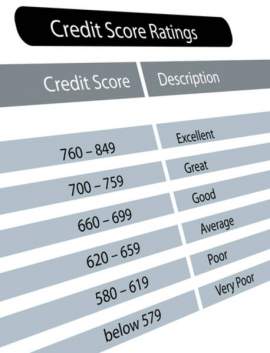
The Secret Behind Credit Card Companies

What is a
Credit Card?
A credit card is a plastic card that enables an
individual to purchase goods, products or services by way of a credit line. The
available credit and the card itself are offered by a financial institution,
such as banks or credit card companies. These institutions will offer an
individual (with a satisfactory credit score) a credit card that is accompanied
by various terms and interest rates.
The interest
rates are based off the individual’s credit score. Those with higher scores,
meaning they are more likely to meet the terms and repayment schedules in the
agreement, will be awarded with a lower interest rate and vice versa.
What are Credit Card Companies?
Credit card companies are financial institutions
who lend credit to consumers or businesses. In essence, the issuance of a
credit card is a form of loan. The individual is given a line of credit that he
or she may use to purchase goods. When goods are purchased, the individual must
repay the issuing credit card company, plus any additional interest that falls
under their specific plan.
Credit card companies, such as MasterCard or Visa, will lend lines of credit to only those individuals who they feel are credit-worthy, meaning the borrower is likely to pay off his or her credit card debts. If the individual fails to pay off their debts, credit card companies will implement various late charges, interest rates and other fees.
If the individual fails to meet the demands of their
repayment schedule entirely, the issuing credit card company will hire a debt
collector or initiate an injunction against the holder of the card.
Costs for Credit Card Companies
Banks or credit card companies typically borrow
the money they lend to their clients or customers. Credit card companies will
receive low-interest loans from other institutions and flip these loans to
their clients at higher rates. For instance, credit companies may charge 15% on
money lent to cardholders if the initial cost of borrowing was 5%. In this
example, credit card companies will earn 10% on the loan offered to individual
customers or clients.
In addition to the money spent on original loans,
credit card companies have considerable operating costs. These costs refer to
the amount of money needed to run a credit card portfolio, including paying
employee salaries, printing the cards, mailing statements, protecting clients
from fraud, marketing and running computers to track every cardholder’s
balance.
Credit card companies also face costs when a consumer
becomes severely delinquent on a payment (severe delinquency is typically
regarded after six months without payment). In instances of severe delinquency,
the credit card companies will declare the debt to be charged-off. The credit
card companies will then list the failures of the holder on the debtor’s credit
bureau reports. A charge-off is viewed as uncollectable. To credit card
companies these bad debts are viewed as the cost of doing business.
Credit Card Companies Legality
Credit Card Companies will typically fall under
the jurisdictions of both Finance Law and Commercial Law.
Finance Law is the legal specialty regulating and
overseeing legislation applicable to the exchange and the circulation of
monies. This takes place in both transfer activity undertaken involving hard
currency, as well as Credit Card Companies.
The precepts of Finance Law ensure
that all terms latent within Credit Card Companies adhere to the Truth in
Lending Act, which ensures that the terms of all Credit Card Companies are
expressed clearly upon applying for credit with Credit Card Companies.
Commercial Law is the legal field that enacts the
regulatory oversight of standards and practices occurring within the commercial
marketplace. With regard to Credit Card Companies, statutory legislation
undertaken within the precepts of Commercial Law ensures that any nature of
predatory lending or financial exploitation is determined to be an illegal
offense.
Amongst the many types of legislation applicable to Commercial Law, the Fair Billing Credit Act provides consumer relief from billing procedures considered to be exploitative and deceptive.
NEXT: What Are Credit Cards





















